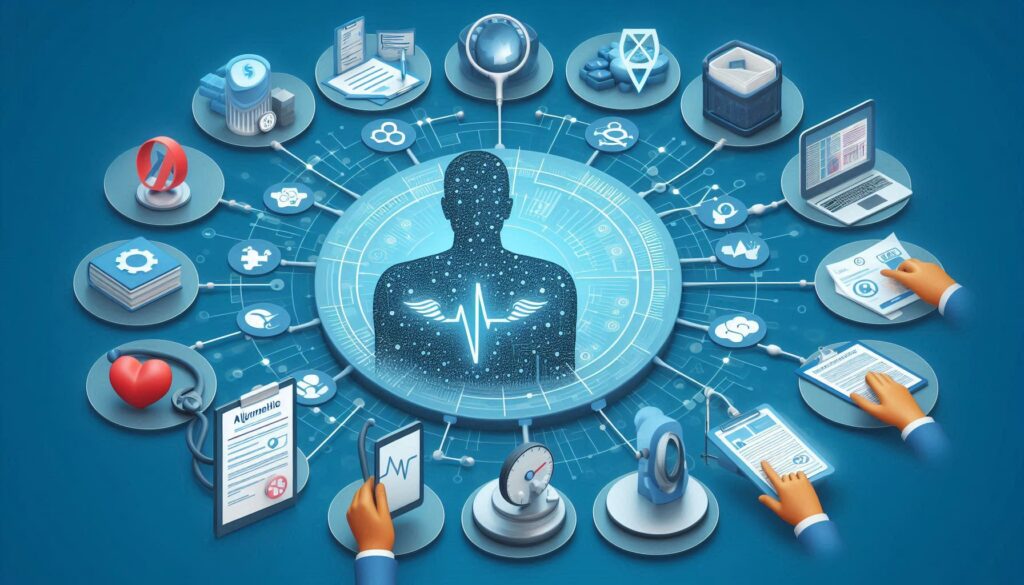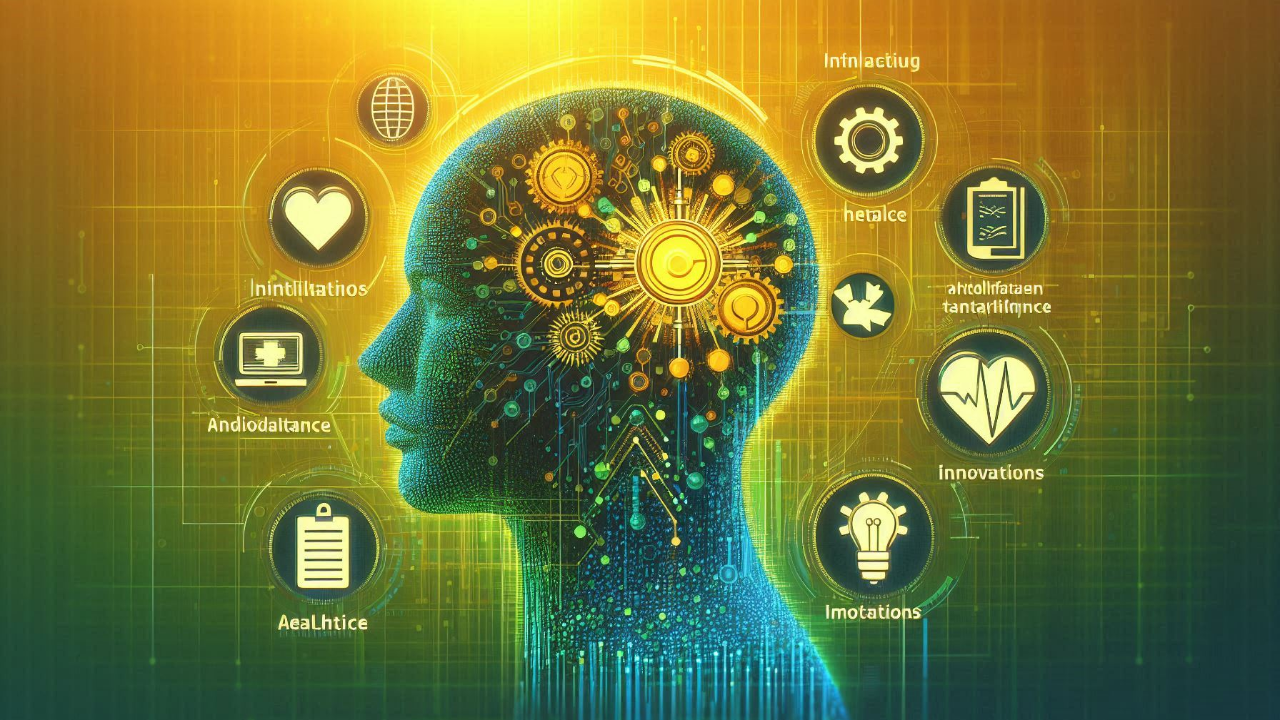Artificial intelligence (AI) is transforming healthcare, revolutionizing everything from diagnostics to treatment plans. Artificial Intelligence Healthcare Companies are at the forefront of these changes, leading the way with innovative technologies that improve patient outcomes and streamline medical processes. In this article, we explore the top AI healthcare companies, their innovations, and the profound impact they are making on the healthcare industry.
Table of Contents
The Rise of Artificial Intelligence Healthcare Companies
As healthcare systems face increasing demands, Artificial Intelligence Healthcare Companies have emerged as key players in addressing challenges such as precision medicine, diagnostic efficiency, and healthcare accessibility. AI-driven tools are revolutionizing how doctors and hospitals manage data, diagnose diseases, and create personalized treatment plans. This growth has sparked global interest, with AI healthcare investments expected to exceed $45 billion by 2026.

Top Artificial Intelligence Healthcare Companies Leading the Revolution
Many companies are making significant contributions to AI in healthcare. Here are some of the industry leaders making waves:
- Google Health: Leveraging AI to develop advanced diagnostic tools, Google Health is improving disease detection, particularly in areas like cancer and diabetic retinopathy. Their AI research helps doctors make quicker, more accurate diagnoses.
- IBM Watson Health: Known for its AI platform Watson, IBM is transforming healthcare by offering AI-powered insights to doctors and researchers. Their machine-learning models are particularly effective in cancer research and drug discovery.
- PathAI: Specializing in pathology, PathAI uses AI algorithms to improve the accuracy of diagnoses and the speed of pathology workflows. Their technology reduces diagnostic errors, leading to better patient care.
To learn more about how AI is shaping the future of medical technologies, check out our article on Google’s Future in Tech Innovations, AI, and Beyond.
Diagnostic Accuracy: AI’s Role in Medical Imaging
Medical imaging has been transformed by AI technology, offering faster and more accurate readings for doctors. Artificial Intelligence Healthcare Companies like Zebra Medical Vision and Aidoc have developed advanced algorithms that analyze X-rays, MRIs, and CT scans to detect diseases like pneumonia, cancer, and brain hemorrhages. These innovations not only improve diagnostic accuracy but also reduce workloads for radiologists.

Personalized Treatment Plans Through AI
Personalized medicine is one of the most significant outcomes of AI in healthcare. Companies such as Tempus and Flatiron Health use AI to analyze genetic data, lifestyle information, and medical histories to create customized treatment plans. This approach enables doctors to provide targeted treatments that are more effective for individual patients, especially in complex diseases like cancer.
Learn how AI impacts healthcare on a broader scale in our article on AI in Revenue Cycle Management.
AI and Drug Discovery: Reducing the Time to Market
The pharmaceutical industry also benefits from artificial intelligence healthcare companies. Traditional drug discovery can take over a decade and cost billions, but AI has the potential to reduce this dramatically. Companies like BenevolentAI and Atomwise use AI algorithms to analyze vast datasets and identify potential drug candidates quickly, cutting down research times and costs. This is particularly critical in addressing diseases like Alzheimer’s and Parkinson’s, where timely treatment discovery is essential.
AI and Robotics in Surgery
AI-powered surgical robots are another major innovation brought by Artificial Intelligence Healthcare Companies. Intuitive Surgical’s da Vinci system, for example, uses AI to assist surgeons in performing minimally invasive surgeries with greater precision. These robots reduce the risk of human error and enhance the capabilities of surgeons, leading to quicker recovery times for patients.

AI in Healthcare Administration: Streamlining Operations
While patient care is the primary focus, Artificial Intelligence Healthcare Companies are also improving administrative tasks in healthcare. AI tools help automate scheduling, patient admissions, and billing, saving time and reducing human errors. Companies like Olive and LeanTaaS offer AI-powered solutions for hospital operations, improving efficiency and cutting costs.
Dive deeper into the impact of AI in healthcare management in our article on Growing AI Risk.
Health Tech and AI: Innovations for Patient Care
Companies such as Microsoft Health and Philips Healthcare are pushing the boundaries of AI in patient care. By integrating AI into wearables and health monitoring systems, these companies help patients manage chronic conditions like diabetes or hypertension remotely. AI systems monitor patient data in real time, sending alerts to healthcare providers in case of abnormalities.
The Ethical Debate: AI in Healthcare
As Artificial Intelligence Healthcare Companies grow in influence, ethical considerations surrounding data privacy and algorithm bias have come to the forefront. The use of patient data by AI companies raises concerns about consent and the potential for misuse. Additionally, biases in AI algorithms can lead to disparities in healthcare outcomes, particularly among underserved populations. It’s crucial for regulators and companies alike to address these ethical issues as AI becomes more integrated into healthcare.

The Future of AI in Healthcare: What’s Next?
Looking ahead, Artificial Intelligence Healthcare Companies will continue to evolve and refine their offerings. The future holds possibilities for even more precise diagnostics, predictive healthcare models, and fully autonomous robotic surgeries. As AI continues to develop, its integration into all aspects of healthcare will become even more profound, fundamentally changing how we experience medicine.
Want a broader view of AI’s future? Check out our article on Google’s Future in Tech Innovations, AI, and Beyond.
FAQs on Artificial Intelligence Healthcare Companies
- What are the leading Artificial Intelligence Healthcare Companies? Leading companies include Google Health, IBM Watson Health, PathAI, Tempus, BenevolentAI, and Intuitive Surgical.
- How does AI improve healthcare diagnostics? AI improves diagnostic accuracy by analyzing medical images and data faster and more precisely than traditional methods, reducing human error and increasing early disease detection rates.
- Can AI replace doctors in the future? AI is unlikely to replace doctors but will serve as an essential tool to assist healthcare professionals in making more informed decisions, streamlining tasks, and improving patient care.
- What are the ethical challenges in AI healthcare? Ethical challenges include data privacy concerns, algorithmic bias, and the need for transparent AI decision-making processes.




